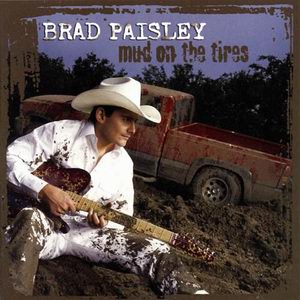
Every night as I fall asleep I listen to a podcast from iTunes U. I can’t go on enough about what a magnificent resource this is. Not only for acquiring knowledge from leading educational institutions, but also for falling asleep. Let’s be honest: university lectures are more often than not soporific. Ambien is less effective as a sedative.
The last couple of weeks I’ve been listening to Donald Kagan’s introductory course on Greek history that he gives at Yale. It’s particularly interesting not so much for the content (which can get a bit snoozy), but because Kagan is perhaps the most conspicuous neoconservative academic working at a reputable university today.
His introductory lecture is a miniature version of the NEH Jefferson Lecture he gave in 2005 (available here). To refer to Kagan’s view of history as conservative is to refer to Versailles as a house. You have to go back all the way to Livy to find a philosophy of history that Kagan agrees with. Namely, that the virtues of the past can be models for the future, while the vices must be avoided. This is a view of history that hasn’t held much water since at least the nineteenth century, as Kagan will readily tell you. In fact, Kagan is happy to tell you all about how history and the humanities have gone awry in the past two centuries with peevish disdain. However, I suppose he can be forgiven for being a bit crank. After all, it must be lonely to be a rational neoconservative working among the fey sophists of postmodern academia.
The year before Kagan’s lecture, poetry critic and literature professor Helen Vendler proposed “that the humanities should take as their central object of study not the texts of historians or philosophers, but the products of aesthetic endeavor: architecture, art, dance, music, literature, theater, and so on.” She thinks this would make history not only more compelling, since art is more interesting than philosophy or political theory, but also give a more well-rounded picture of the past. This is of course in direct opposition to Kagan, who thinks that only the political machinations of the Peloponnesus can give true insight into human possibility. Given Vendler’s proposition, and her status of a modern poetry lover, I thought it would be interesting to look at a couple of poems that took history as their subject to see what poets thought about this whole deal.
Our first poem is confounding one. W.B. Yeats had a rather bizarre view of history. He came up with a cockamamie notion of two “gyres” which intersected in some swirling vortex. I can only imagine two conical slinkies, so the profundity of this view is beyond me. In “The Second Coming,” the slinkies are apparently in a bad phase, and Armageddon is at hand. Yeats eschatological imagery is, I think, scarier than anything in the bible.
Turning and turning in the widening gyre
The falcon cannot hear the falconer;
Things fall apart; the centre cannot hold;
Mere anarchy is loosed upon the world,
The blood-dimmed tide is loosed, and everywhere
The ceremony of innocence is drowned;
The best lack all conviction, while the worst
Are full of passionate intensity.
Thanks to this poem, I now understand this New Yoker cartoon:

In 1973 Robert Lowell published a collection of poems about history entitled, what else, History. Given his status as founder of the confessional poem, Lowell’s version of history is intimate and individual. Though he writes about Leonidas, Cleopatra, Napoleon, and Hitler, his poems are about the powerlessness of human action and the commonality of life experience. In “History,” Lowell remarks on the sad end we all meet, and the untidy mess we leave behind:
History has to live with what was here,
clutching and close to fumbling all we had--
it is so dull and gruesome how we die,
unlike writing, life never finishes.
As Jonathan Veitch wrote, Lowell has “a sense of history as rupture, of human action truncated by the imperium of death.” I’m guessing Kagan isn’t a fan. Lowell sounds an awful lot like those relativists that neoconservatives can’t stand.
In fact, I can’t think of any poems today that Kagan might like. I suppose he’ll have to stick to the Homer.
But why should a neoconservative view of history matter? And what about poetry? History has always been used to justify the present. For Kagan, neocon extraordinaire, the ancient Greek political system was the single greatest accomplishment of early civilization. It is therefore incumbent upon the present generation to gift democratic governments to every nation, by force if necessary, since they don’t have the benefit of an intellectual tradition rooted in ancient Greece. This is the intellectual ferment that resulted in the Iraq War. But is it sound reasoning?
When the Iraq war happened, I was youthfully neocon-inclined and was romanced by the notion of spreading democracy about the world. After the disaster that was the first five years of the War, I regret my enthusiasm. I’m haunted by Robert Bly’s poem “Call and Answer” from August of 2002. He wrote:
Have we agreed to so many wars that we can't
Escape from silence? If we don't lift our voices, we allow
Others (who are ourselves) to rob the house.
How come we've listened to the great criers-Neruda,
Akhmatova, Thoreau, Frederick Douglas-and now
We're silent as sparrows in the little bushes?
Some masters say our life lasts only seven days.
Where are we in the week? Is it Thursday yet?
Hurry, cry now! Soon Sunday night will come.
Maybe if we thought more about the uses of history, we might come to better understand how we want to go about making our future. And maybe, some years from now, a new Homer will have something profound to write about what all went down.
Sing, goddess, the rage of the West, son of Greece, the destructive rage that sent countless ills on the Iraqis…



 2007 was a heady year for environmental politics. An Inconvenient Truth won an Oscar, the “Live Earth” concerts gave people a reason to watch network television in July, fluorescent bulbs finally became affordable, and the lexicon absorbed a panoply of new buzzwords like “going green,” and “carbon footprint.” That year some interest group, perhaps intoxicated from bio-diesel fumes, posted ads in the subway which read: “Caught Doing Laundry During Peak Hours!” Pictured was a thirty-something woman holding a laundry basket—her mouth agape with horror at her misdeed. I found these ads ridiculous. Of all the environmental boogey-people to target, they apparently settled on what they thought was the worst of the worst: stay at home moms. They shouldn’t do their laundry during the day when corporations have non-green-roofed, non-LEED certified office buildings to deep freeze. They should do such indulgent activities at night. “I’m sorry, Timmy, Mommy can’t tuck you in tonight. She has to wash your clothes for tomorrow while the power grid is in low use.”
2007 was a heady year for environmental politics. An Inconvenient Truth won an Oscar, the “Live Earth” concerts gave people a reason to watch network television in July, fluorescent bulbs finally became affordable, and the lexicon absorbed a panoply of new buzzwords like “going green,” and “carbon footprint.” That year some interest group, perhaps intoxicated from bio-diesel fumes, posted ads in the subway which read: “Caught Doing Laundry During Peak Hours!” Pictured was a thirty-something woman holding a laundry basket—her mouth agape with horror at her misdeed. I found these ads ridiculous. Of all the environmental boogey-people to target, they apparently settled on what they thought was the worst of the worst: stay at home moms. They shouldn’t do their laundry during the day when corporations have non-green-roofed, non-LEED certified office buildings to deep freeze. They should do such indulgent activities at night. “I’m sorry, Timmy, Mommy can’t tuck you in tonight. She has to wash your clothes for tomorrow while the power grid is in low use.” 

 I’ll simply describe him as a hedonist. But he’s also a charming wit (see Season 3, Episode 1) and a stone cold silver fox. What poet’s work might encapsulate this decadent and libidinous entitlement?
I’ll simply describe him as a hedonist. But he’s also a charming wit (see Season 3, Episode 1) and a stone cold silver fox. What poet’s work might encapsulate this decadent and libidinous entitlement? 
 Two posts ago I paraphrased the first two lines of The Iliad. Well, I paraphrased
Two posts ago I paraphrased the first two lines of The Iliad. Well, I paraphrased 
















